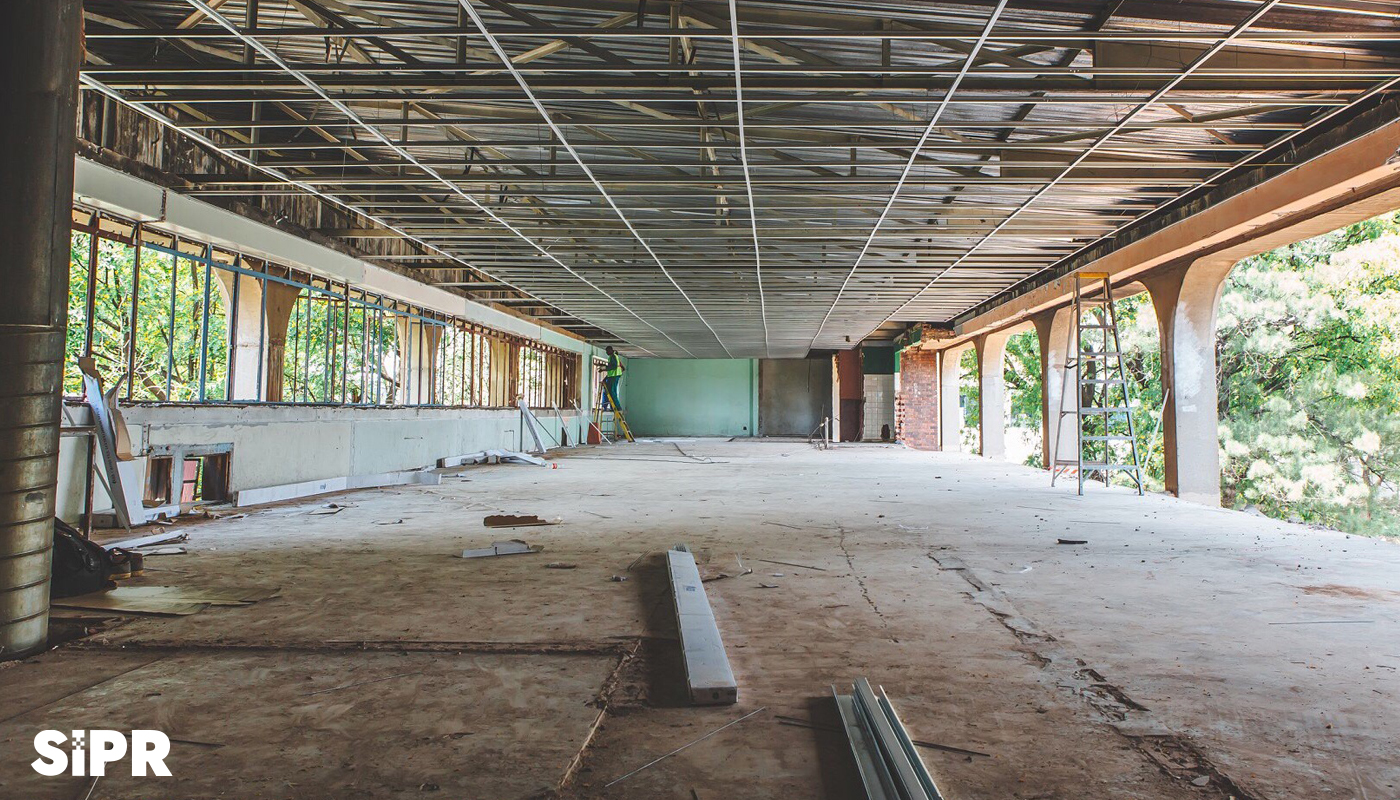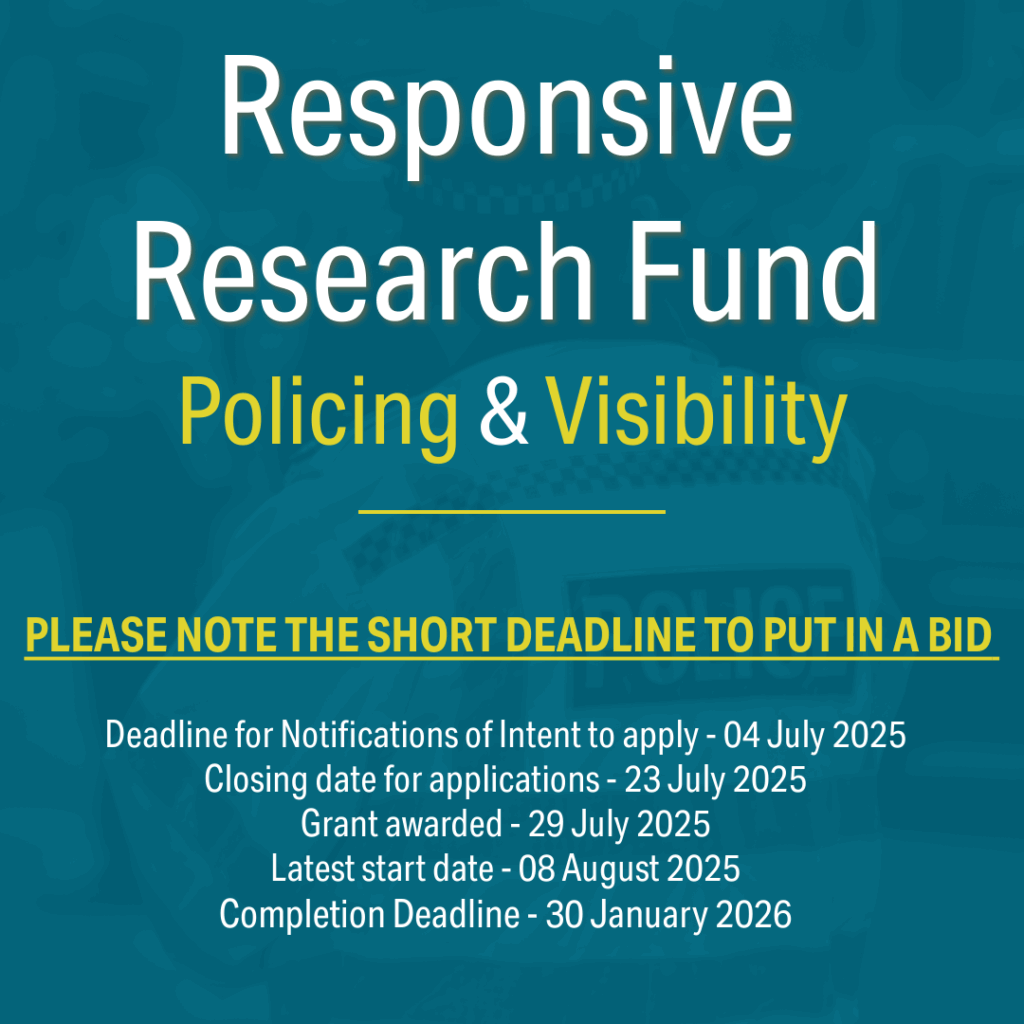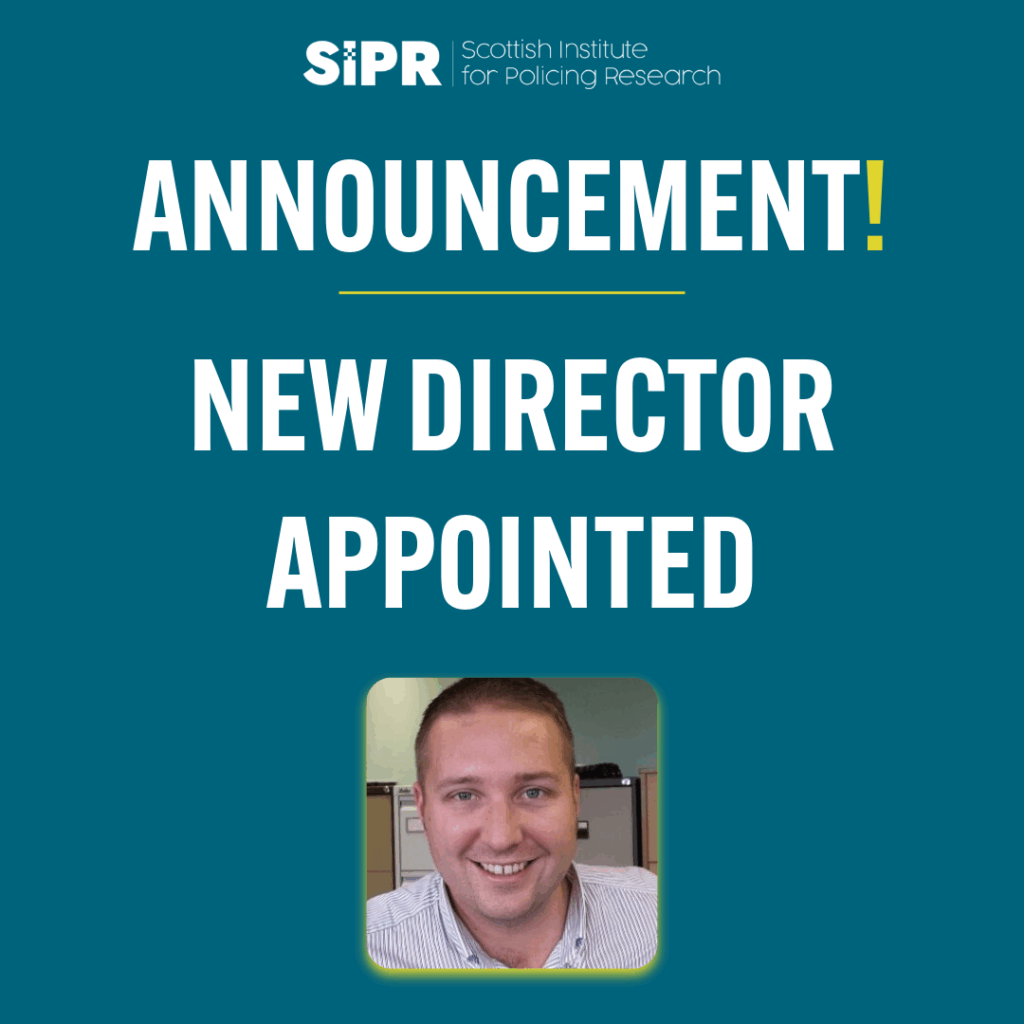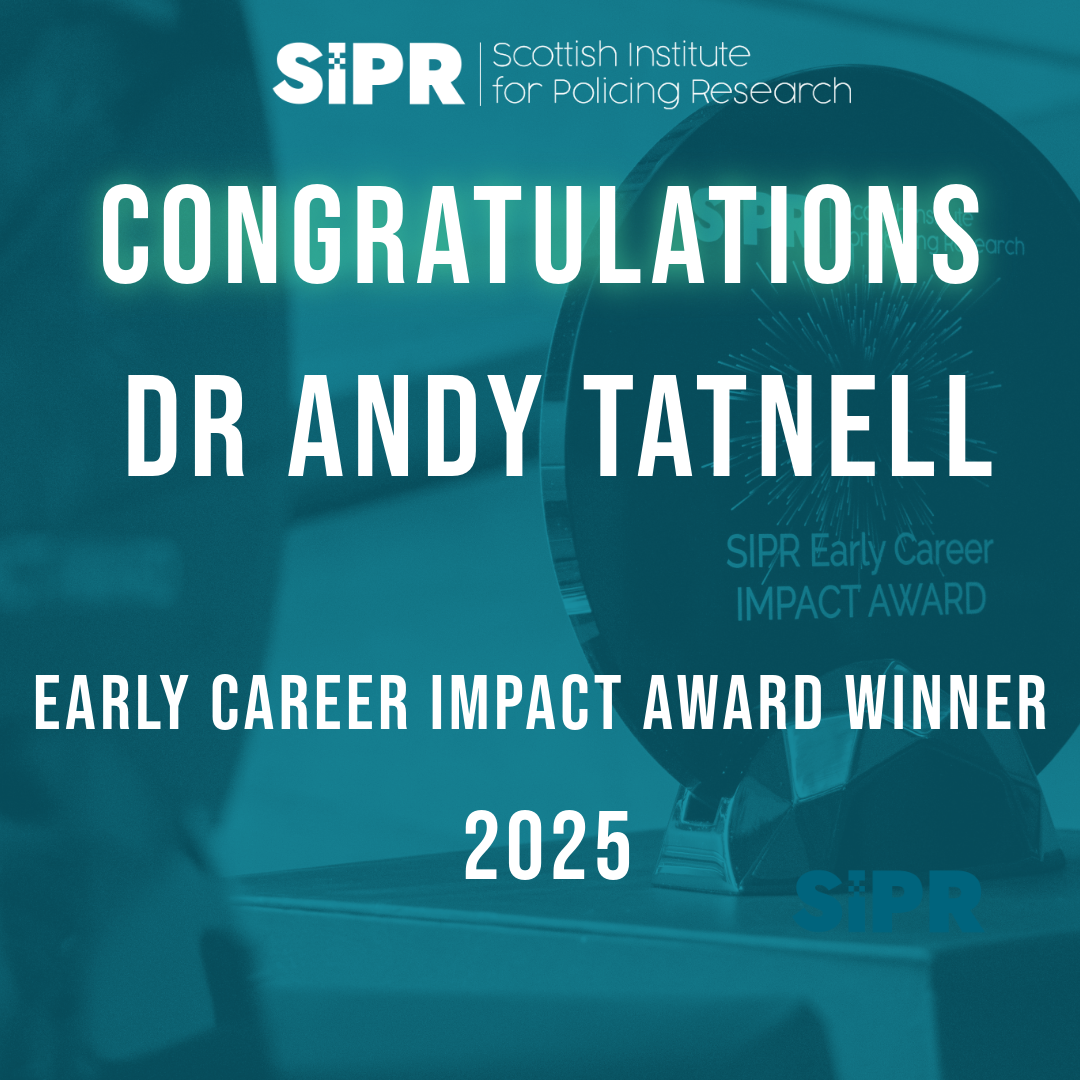By: Larissa Engelmann, Ph.D. Student, Edinburgh Napier University

In April 2019 I was able to take a group of our first year undergraduate Policing and Criminology students to the Scottish Police College at Tulliallan. This was not just a unique opportunity for them to see what the probationer training looks like and ask questions but also a fantastic insight for myself into a world only very few of us ever get to see. After starting my Ph.D. in October, looking at the role of education in police officer development in Scotland, being asked to lead this trip to the Scottish Police College was a more than welcome task, I was willing to take on. Working closely with Sergeant Andy Wilson, without whom this day would not have been possible, we were able to put on a great day for both the students and myself.
After being greeted by Sergeant Wilson and getting an introduction to the Scottish Police College, his Inspector was able to give us an idea of what being a police officer meant to him and what our students should expect, if they do choose to join the force. After his, admittedly quite vivid recollection of some of the more intense and difficult calls he attended (almost straight out of a BBC crime drama series with the smell of dead bodies and hanging eye balls), it was great to hear about the variety of opportunities that are available when working for Police Scotland. Hearing about some of the more difficult cases officers attended, those involving death or vulnerable people, illustrated the importance of making strong connections during probationer training, as well as being able to have a sense of humour to deal with and work through some of the more dreadful cases. The range of different tasks illustrated and the excitement of what being a police officer is like was furthered by watching the recently published recruitment video from Police Scotland (https://www.youtube.com/watch?v=UovLuydIiJQ). Even though, many of us knew that police work involves a thrill-seeking factor and some more difficult cases, listening to the most memorable stories from police officers directly, was, while getting a few laughs and cringes from us, a great way to make a link between theory, expectations and reality. Illustrating just how unique this job really is.
When we walked into the Operational Safety Training (OST) training room, we were greeted by falling probationers all over the place. They were learning how to use practical defence skills for situations in which a member of the public might start to physically fight them. It looked much like a self-defence class and I think the thrill aspect of it and the fun and engaging nature of the instructors, was something our students quite enjoyed. I thought it was great to see the way in which police officers are prepared for such difficult situations. Sergeant Andy Wilson also told us how the training is basically split into three themes, first introducing officers to the grounds which might get them fired, then through OST ensure that officers know how to practically do their tasks in line with the law and lastly learning about the law and how to apply it in practice. It was interesting to hear about the focus of police training and helpful for students to know what to prepare themselves for.

Having the chance to talk to probationers in the 8th week of training (out of 11), the classroom based learning and remembering of the law can be particularly dry, but they also recognise the importance of it, and how building study groups with their fellow probationers in the same boat being super helpful. Additionally, they mentioned how great particularly the practical training was.
The hardest thing about the process, in their opinion, was actually the application process especially filling in the initial application form and the competency-based interview. They gave our students some invaluable tips on how to prepare for these steps and what they can look forward to when they start their training.
Additionally, considering my research interest in the role of education in police officer development, it was incredibly interesting and a fantastic opportunity for me to hear more about the importance to go through the training process together and learning from each other. However, it was also interesting to hear the weight they put on experiential learning in the 2-year probationary period after their initial training and the inability to learn effectively until they are able to apply their learning in practice.
PC Chris McLeish was able to give us a taster session of what a lecture about Search procedures may look like. His way of teaching was very much interactive and even though our first- year students were very quiet and maybe a bit afraid of saying something wrong, they were quickly warming up and starting to become more engaged. Using his own experiences was extremely helpful to make us understand all the different contexts in which searches may be required. To make this learning even more relevant, we were invited into one of the scenario rooms. It was good to see how much effort the Scottish Police College has put into scenario rooms and also the sports facilities and Hydro suites, illustrating how important relevant and applicable training and learning is to Police Scotland.
All in all, I think this trip was an absolutely fantastic opportunity, not just for our students to find out more about what it is like to be a new recruit with Police Scotland and get tips for applying, but it was also a great experience for myself. I was able to ask questions and get a unique insight into what is a very hidden area of training and development, if you are from outside the police force. I was positively surprised by some of the learning and teaching approaches I was able to see, nevertheless, I am looking forward to having a closer look at the use of educational approaches across rank and years of service and what might help to improve the training even further.
Thanks goes to Dr Andrew Wooff for the initial organisation of the trip, Sergeant Andy Wilson for creating such an incredible day of activities, his Inspector and PC Chris McLeish for giving us a vivid idea of the different tasks police officers undertake and sharing their sheer enthusiasm for the role with us. Lastly, I would like to thank the four probationers who came to answer our questions and enabled us to see the difficulties but also the positives of the journey of becoming a police officer.



